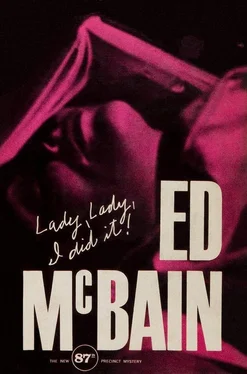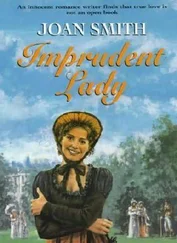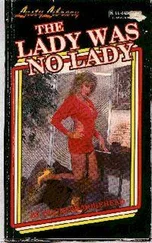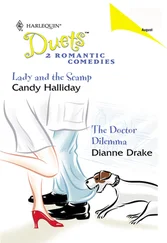Willis put the report into the Kling Case folder and then said to Brown, who was sitting at the next desk, “That’s great, ain’t it? A goddamn hophead. How do we find out where a hophead was living? Probably in Grover Park underneath a goddamn bench! How do we find the friends and relatives of a goddamn hophead?”
Brown considered this pensively for a moment. Then he said, “Maybe it’s a break, Hal. This may have been the one he wanted. Hopheads get mixed up in a lot of crazy things.” He nodded again, emphatically. “Maybe this is a break.”
And maybe it was.
Monday morning came.
It always does.
On Monday morning you sit back and take a look at things, and things look lousy. That’s a part of Monday, the nature of the beast. Monday should be a fresh beginning, a sort of road-company New Year’s Day. But, somehow, Monday is only and always a continuation, a familiar awakening to a start that is really only a repetition. There should be laws against Monday morning.
Arthur Brown didn’t like Monday morning any more than anyone else did. He was a cop, and only incidentally a Negro, and he lived in a colored ghetto close to the office. He had a wife named Caroline, and a daughter named Connie, and they shared a four-room flat in a building weary with time. Happily, when Brown got out of bed on the morning of October 16, the floors were not cold. The floors were usually cold around this time of year, despite the city ordinance that made it mandatory to provide steam heat beginning on the fifteenth of October. This year, with Indian summer swinging her hot little behind through the city, the landlords were enjoying a reprieve, and the tenants didn’t have to bang on the radiators. Brown was grateful for the warm floors.
He got out of bed quietly, not wanting to wake Caroline, who was asleep beside him. He was a big man with close-cropped black hair and brown eyes and a deep-brown complexion. He had worked on the docks before he joined the force, and his arms and shoulders and chest still bulged with the muscles of his youthful labor. He had been sleeping in his pajama bottoms, Caroline curled beside him in the over-large top. After he silently slipped out of bed, he walked bare-chested into the kitchen, where he filled a kettle with water and put it on the stove. He turned on the radio very softly and listened to the news broadcast as he shaved. Race riots in the Congo. Sit-in demonstrations in the South. Apartheid in South Africa.
He wondered why he was black.
He often wondered this. He wondered if idly, and with no real conviction, that he was black. That was the strange part of it. When Arthur Brown looked in the mirror, he saw only himself. Now he knew he was a Negro, yes. But he was also a Democrat, and a detective, and a husband, and a father, and he read The New York Times — he was a lot of things. And so he wondered why he was black. He wondered why, being this variety of things besides being black, people would look at him and see Arthur Brown, Negro — and not Arthur Brown, detective, or Arthur Brown, husband, or any of the Arthur Browns who had nothing to do with the fact that he was black. This was not a simple concept, and Brown did not equate it in simple Shakespearian-Shylock terms, which the world had long outgrown.
When Brown looked into his mirror he saw a person.
It was the world who had decided that this person was a black man. Being this person was an extremely difficult thing, because it meant living a life the world had decided upon, and not the life he — Arthur Brown — would particularly have chosen. He, Arthur Brown, did not see a black man or a white man or a yellow man or a chartreuse man when he looked into his mirror.
He saw Arthur Brown.
He saw himself.
But superimposed upon this image of himself was the external concept of black man-white man, a concept that existed and that Brown was forced to accept. He became a person playing a complicated role. He looked at himself and saw Arthur Brown, Man. That’s all he wanted to be. He had no desire to be white. In fact, he rather liked the warm, burnished color of his own skin. He had no desire to go to bed with a creamy-skinned blonde. He had heard colored friends of his state that white men had bigger sex organs than Negroes, but he didn’t believe it, and he felt no envy. He had encountered prejudice in 101 subtle and unsubtle ways from the moment he was old enough to understand what was being said and done around him, but the intolerance never left him feeling angry — it only confused him.
You see, he thought, I’m me, Arthur Brown. Now what is all this white man-black man crap? I don’t understand what you want me to be. You are saying I’m a Negro, you are telling me this is so, but I don’t know what Negro means, I don’t know what this whole damn discussion is all about. What do you want from me, exactly? If I say, why yes, that’s right, I’m a Negro, well, then what? What the hell is it you want, that’s what I’d like to know.
Arthur Brown finished shaving, rinsed his face, and looked into the mirror.
As usual, he saw himself.
He dressed quietly, drank some orange juice and coffee, kissed his daughter as she lay sleeping in her crib, woke Caroline briefly to tell her he was off to work, and then went cross town to the neighborhood where Joseph Wechsler had run a hardware store.
It was purely by chance that Meyer Meyer went to see Mrs. Rudy Glennon alone that Monday morning, the chance having been occasioned by the fact that Steve Carella had drawn Lineup duty. Things might have worked out differently had Carella been along, but the police commissioner felt it was necessary to acquaint his working dicks with criminals every Monday to Thursday inclusive. Carella, being a working dick, took the Lineup duty like a man and sent Meyer to Mrs. Glennon’s apartment alone.
Mrs. Glennon was the name supplied by Dr. McElroy at Buenavista Hospital, the woman with whose family Claire Townsend had been personally involved. She lived in one of the worst slum sections in Isola, some five blocks from the station house. Meyer walked over, found the apartment building, and climbed the steps to the third floor. He knocked on the door to the apartment and waited.
“Who is it?” a voice called.
“Police,” Meyer called.
“What do you want? I’m in bed.”
“I’d like to talk to you, Mrs. Glennon,” Meyer said.
“Come back next week. I’m sick. I’m in bed.”
“I’d like to talk to you now, Mrs. Glennon.”
“What about?”
“Mrs. Glennon, would you open the door, please?”
“Oh, for the love of Mary, it’s open,” she shouted. “Come in, come in.”
Meyer turned the knob and stepped into the apartment. The shades were drawn and the room he entered was dim. He peered into the apartment.
“I’m in here,” Mrs. Glennon said. “The bedroom.”
He followed the voice into the other room. She was sitting in the middle of a large double bed, propped against the pillows, a small faded woman wearing a faded pink robe over her nightgown. She looked at Meyer as if even the glance sapped all her energy. Her hair was stringy, threaded with gray strands. Her cheeks were gaunt.
“I told you I was sick,” Mrs. Glennon said. “What is it you want?”
“I’m sorry to bother you, Mrs. Glennon,” Meyer said. “The hospital told us you’d been released. I thought—”
“I’m convalescing,” she interrupted. She said the word proudly, as if she had learned it at great expense.
“Well, I’m awfully sorry. But if you feel you can answer a few questions, I’d appreciate it,” Meyer said.
“You’re here now. I might as well.”
Читать дальше

![Дэвид Лоуренс - Lady Chatterley's Lover [С англо-русским словарем]](/books/26613/devid-lourens-lady-chatterley-s-lover-s-anglo-thumb.webp)










